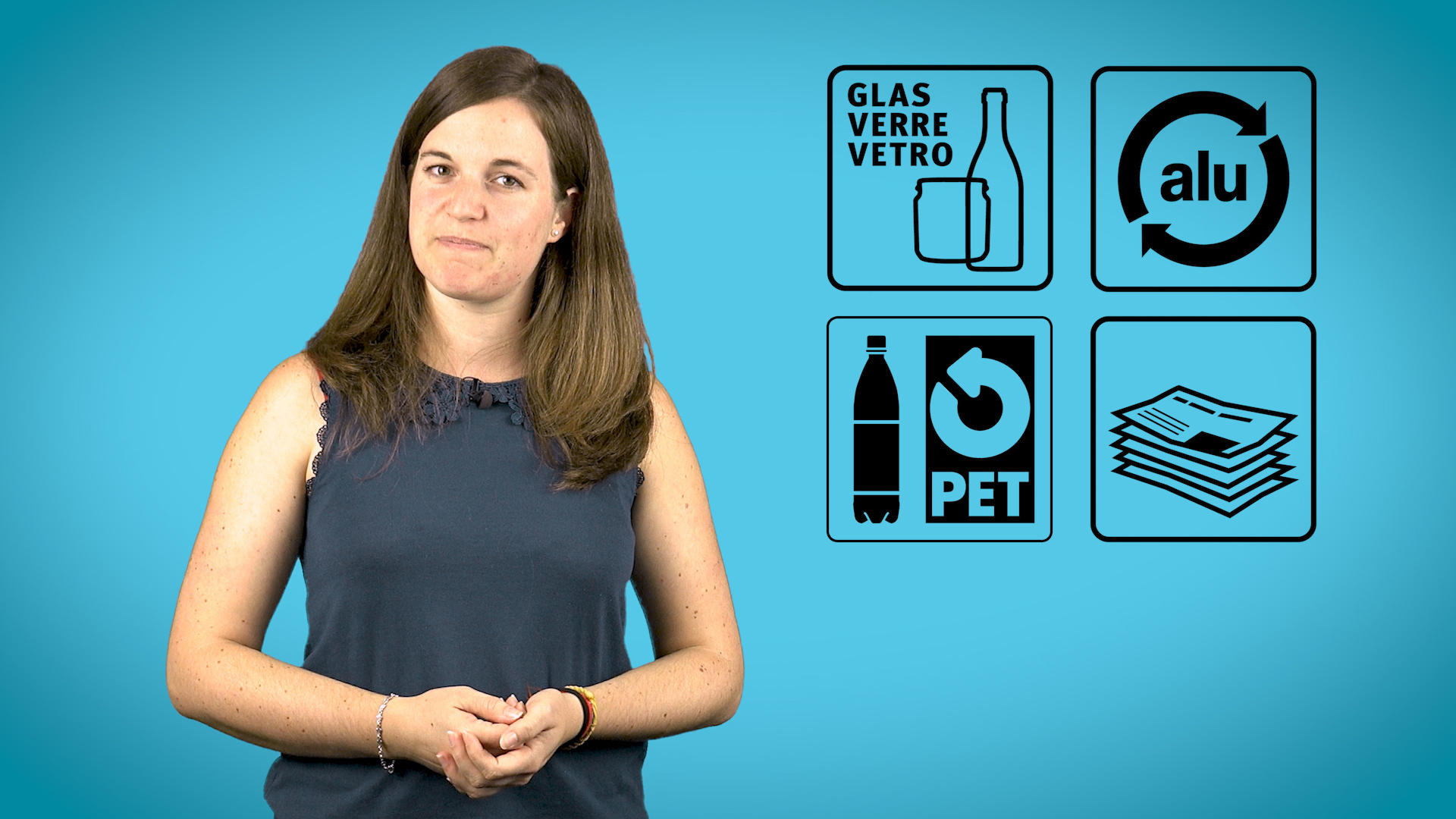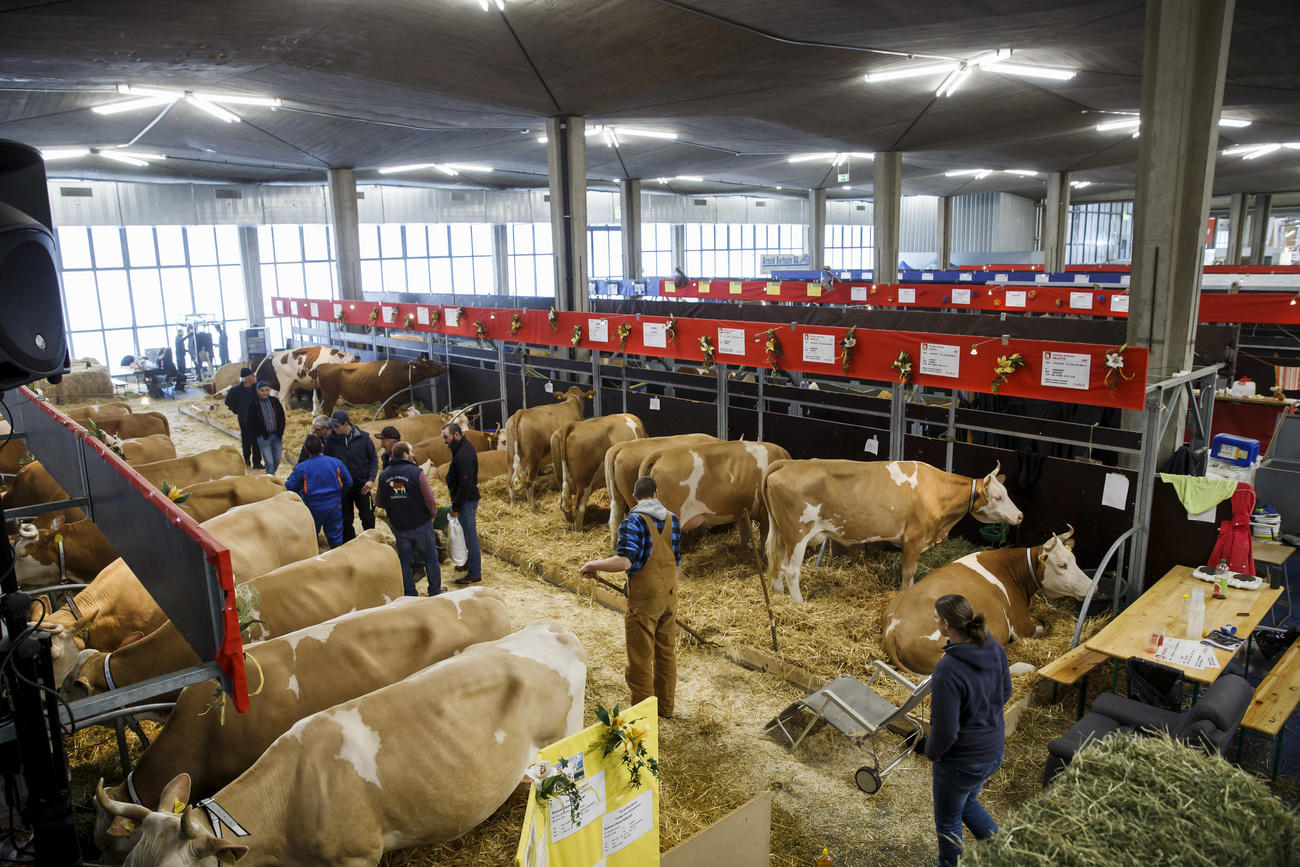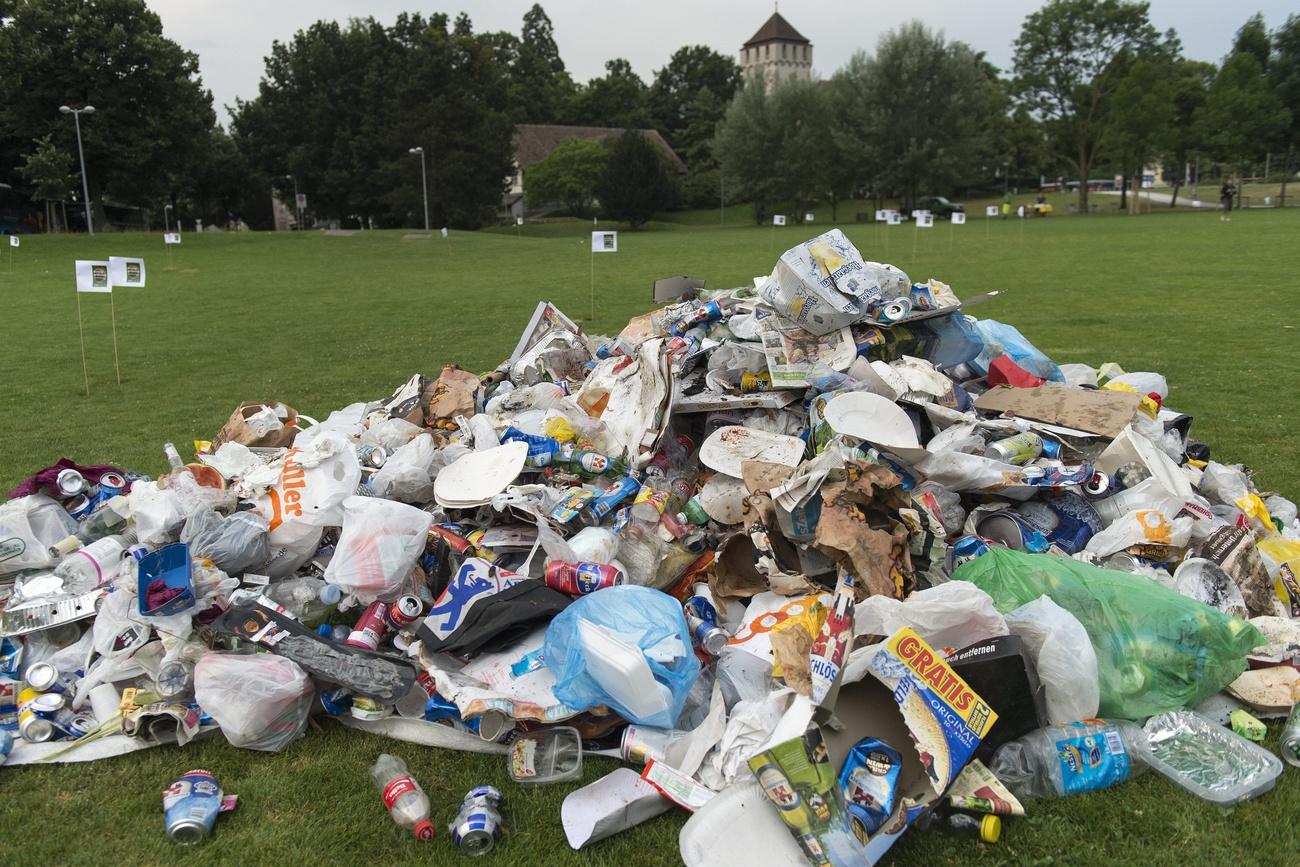
Reversing climate change requires more of everyone
Contributor Gordon Langlois argues that in the fight to address climate change, measures need to be explored beyond adjusting consumer habits. He calls for a bolder approach in Switzerland, where plastic use and a throwaway culture undermine progress, and challenges industrial players to do their part.
On the weekend, I decided to make a salad to accompany the steaks we were grilling for dinner. I managed to use up most of the produce in my refrigerator; cherry tomatoes, organic cucumber, mixed green lettuce, yellow peppers, fresh mozzarella. With every item I used, I threw out a plastic container. Every single one.
We have been inundated with news that our globe is passing a point of no return when it comes to global warming. Slowly we are using more green transport, getting our energy from renewable resources and making sure that we recycle… but that got me thinking that maybe therein lies the problem. The challenge to drastically reduce our carbon footprint needs more dramatic action than making sure I bring my bottles back to the recycling center.
Organised, but effective?
One of the challenges, certainly in Switzerland, is that we think we are doing our part. Photos of plastic waste clogging up lakes and rivers do not come from here. Our scenery is pristine. And we recycle. The recycling regimen that we follow is second to none – in fact, Switzerland has been called the world champion of recycling. Paper, cardboard separated from the paper, metal, PET bottles… Since 2000, Switzerland has not used landfills to dispose of rubbish.External link We recycle. We incinerate. That certainly must be enough.
The Swiss do recycle 54%External link of materials, which is well above the European average of 28% (data from 2015). Somewhat surprisingly, however, Switzerland has become a throw-away society and is among the world’s largest waste producers, exceeding the OECD average of 522 kg of waste per capita by more than 35%. (The Swiss average is 730 kg; data from 2014). Even worse, Switzerland consumes 100kg of plastic per capita (three times more than the European average) and recycles 30% less of it.
As a consumer, I want to know what more I can do. At the same time, I believe that no matter what I do to change my habits, they cannot and will not make the difference needed to stop a climate change catastrophe.

Meat, dairy and cement
That’s why we also need to hold accountable the top industrial contributors to climate change – some of whom have flown under the radar.
In a recent report, two non-profit organizations, the Institute for Agriculture and Trade Policy and GRAIN, conducted an analysisExternal link of the planet’s 35 largest meat and dairy companies and found that the industry is on track to be the world’s biggest contributorExternal link to climate change, outpacing even the fossil fuel industry.
They also found that broadly speaking, the companies were being secretive about their emissions data and few within their industry specifically had set hard targets intended to deal with their pollution.
Another major emissions source is the production of cement. Cement is the source of about 8%External link of the world’s carbon dioxide (CO2) emissions, according to Chatham House. If we thought of cement producers as a country, they would be the third-largest emitter in the world, behind China and the US. They contribute more CO2 into our atmosphere than aviation fuel (2.5%) and global agriculture business (12%). Cement producers could be forced to find more environmentally-friendly ways to produce their product or could be held responsible if they refuse to make the adjustment.

More
Why is plastic so hard to recycle?
The plastic puzzle
Then there’s plastic. While we talk about the reduction of plastic straws and grocery bags, the global production of the synthetic material has consistently grown. Global plastic production will see a four-fold increase by 2050External link, according to a study from the organization Break Free from Plastic. Looking at plastic production since the 1950s, 8.3 billion metric tons of plastic has been produced and only 9% of it has been recycled. The rest still exists in landfills, rivers, and oceans. Why are we producing more when we can’t recycle what we have?
Should we blame the manufacturers? It comes as no surprise to most that the largest plastic producers globally are also the largest oil and gas companies. But by looking at which companies use the most plastic, we consumers can perhaps have an impact.
In March, Coca-Cola for the first time revealed that it uses three million tonsExternal link of plastic packaging in one year. Nestlé uses 1.7 million tons; Colgate: 287,008 tons.
On the consumer level, a slow movement is underway to offer us more and more products without plastic packaging. Choosing these options will not save the world alone but would be a start.
Ultimately, though, the biggest influencers of change must be our governments. Legislating that only essential plastics be produced could be a bigger step forward than what we can take individually. Implementing a massive tax on products that contain un-recycled plastic or unnecessary plastic would force consumers to find alternative options and would force industry to provide those alternatives.
Our mindset must change from one that is focused on making incremental changes to one that looks for massive ways to move forward. Some industries pollute more than others and it is time to put the challenge to them.

More
Wasteful Swiss among top recyclers
The views expressed in this article are solely those of the author, and do not necessarily reflect the views of swissinfo.ch.
Opinion series
swissinfo.ch publishes op-ed articles by contributors writing on a wide range of topics – Swiss issues or those that impact Switzerland. The selection of articles presents a diversity of opinions designed to enrich the debate on the issues discussed. If you would like to submit an idea for an opinion piece, please e-mail english@swissinfo.ch

In compliance with the JTI standards
More: SWI swissinfo.ch certified by the Journalism Trust Initiative




































You can find an overview of ongoing debates with our journalists here . Please join us!
If you want to start a conversation about a topic raised in this article or want to report factual errors, email us at english@swissinfo.ch.